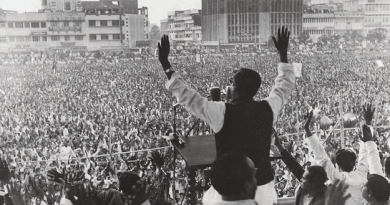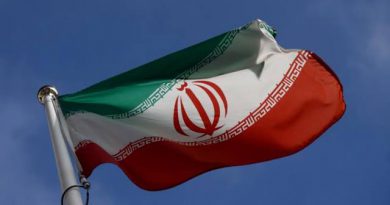OPINION: Why is Twitter censoring Trump, but not the CCP?
by Paddy Hannam
Apparently, celebrating the persecution of Xinjiang’s Muslims did not break Twitter rules.
This week, Donald Trump was blocked indefinitely from Facebook. He was also handed a 12-hour Twitter suspension and three of his tweets were deleted.
These moves came after Trump supporters stormed the Capitol, with the president’s critics accusing him of inciting and then failing to condemn the violence in which five people died.
Some have pointed to these firms’ inconsistency. Twitter, for example, while censoring Trump, has taken no action against a tweet from the Chinese embassy in the US, which has framed the ethnic cleansing of Uyghurs as a form of re-educative liberation.
“Study shows that in the process of eradicating extremism, the minds of Uyghur women in Xinjiang were emancipated, and gender equality and reproductive health were promoted, making them no longer baby-making machines”, a tweet by the embassy proudly announced.
Apparently, celebrating the persecution of Xinjiang’s Muslims did not break Twitter rules.
The tweet revealed the sinister character of the Chinese government’s propaganda. It also seems as if Twitter felt the outgoing president to be more worthy of online punishment than an authoritarian state persecuting a whole race of people.
Could there be a more telling example of Silicon Valley’s misplaced priorities? The Bad Orange Man, for all his failings, does not come close to the level of evil being perpetrated in Xinjiang.
But in Big Tech execs’ minds, the imagined threat of a Trumpian coup appears to be more concerning than the actual reality of authoritarian China.
But calls to censor Chinese propaganda also miss the point, of course. If anyone thinks blocking a tweet from an arm of the Chinese state will have any positive impact whatsoever on Chinese policy, they are deluded.
And the notion that removing those we do not like from the public space is a good way to challenge or even better understand their ideas is deeply misguided.
The problem with Big Tech censorship is not its inconsistency, although that itself is certainly a concern. It is the censorship itself. The simple fact that social-media firms have the power and inclination to silence people at will – including people as powerful as the US president – is a dangerous threat to free expression. And the idea that this is the most effective response to authoritarianism is absurd.
China’s tweet served to remind us of the truth-twisting, inhuman nature of its propaganda. It is surely better to let people share the embassy’s foul tweet – letting the world know of China’s foul deeds – than to expunge it from our collective online consciousness. Censorship merely puts the issue out of sight and out of mind.
You can’t fight authoritarianism with censorship.
Article first published on Spiked.
Paddy Hannam is editorial assistant at Spiked. He tweets under @paddyhannam.



